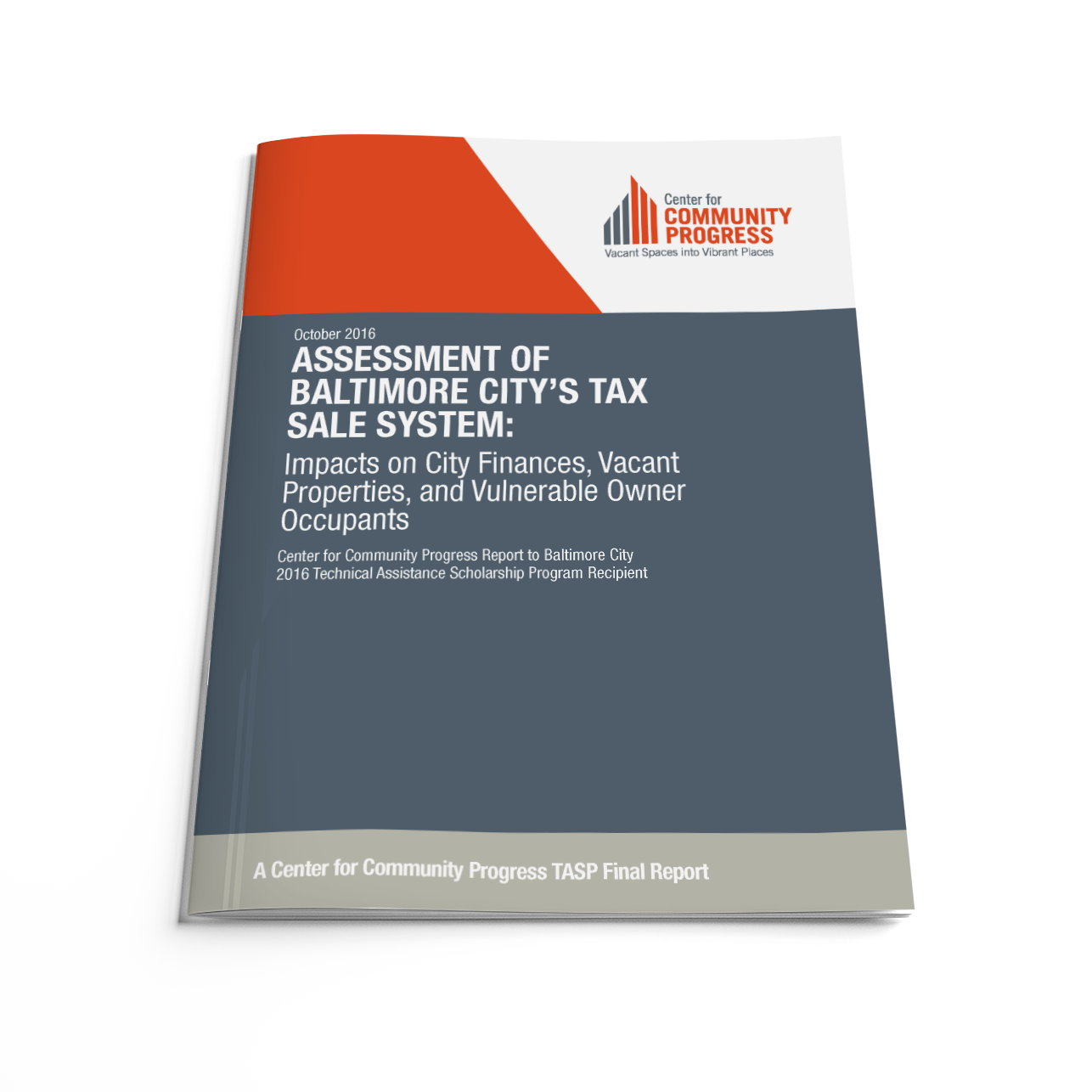
Assessment of Baltimore City’s Tax Sale System
Impacts on City Finances, Vacant Properties, and Vulnerable Owner Occupants
Published: October 2016
Geography: Maryland
Author(s): Center for Community Progress
In March 2016, Community Progress — through our technical assistance scholarship program — worked with Baltimore City, Maryland to help the Baltimore City Tax Sale Work Group (a consortium of nonprofit leaders, Baltimore City government officials, State representatives, and foundation executives) identify ways to improve Baltimore City’s tax sale system.
Baltimore is in the enviable position to become the nation’s model for creating an equitable, efficient, and effective property tax enforcement system. Property taxes impact everyone – they are the lifeline revenue source for the provision of basic city services, one of the primary barriers to returning a vacant and abandoned property to responsible ownership, and a common cause of low-income homeowners’ financial hardship and loss of home equity. Indeed the property tax enforcement system has tremendous influence on the ability of local government to serve its residents, on quality of life and neighborhood stability, and on the ability of each and every constituent throughout Baltimore City to access generational wealth. However, there is general agreement from local City and community partners that the current system of collecting property taxes is not equitable, efficient, or effective.
If Baltimore City has the appetite to turn the system right-side up, embrace wholesale system change, and become the model for others across the country to emulate, then one solution is to consider amending state law and local policy to develop a new tax enforcement system that would be equitable, efficient, and effective.
At the core of this new model of property tax enforcement are two features: the elimination of the sale of tax certificates to the private market, and an end to the recycling of a substantial “shadow” inventory of vacant and abandoned properties through the tax sale each year. In this new approach, Baltimore City would establish a date certain by which property owners would either have to pay off delinquent taxes (or, if eligible, enter into a payment plan) or face foreclosure. Baltimore City would then auction off the actual deed of a foreclosed property, and in the absence of any bidder, would assume ownership of the property.
This report outlines how such a system would work, as well as other resources that would be needed for comprehensive systems change.
Subscribe to join 14,000 community development leaders getting the latest resources from top experts on vacant property revitalization.
